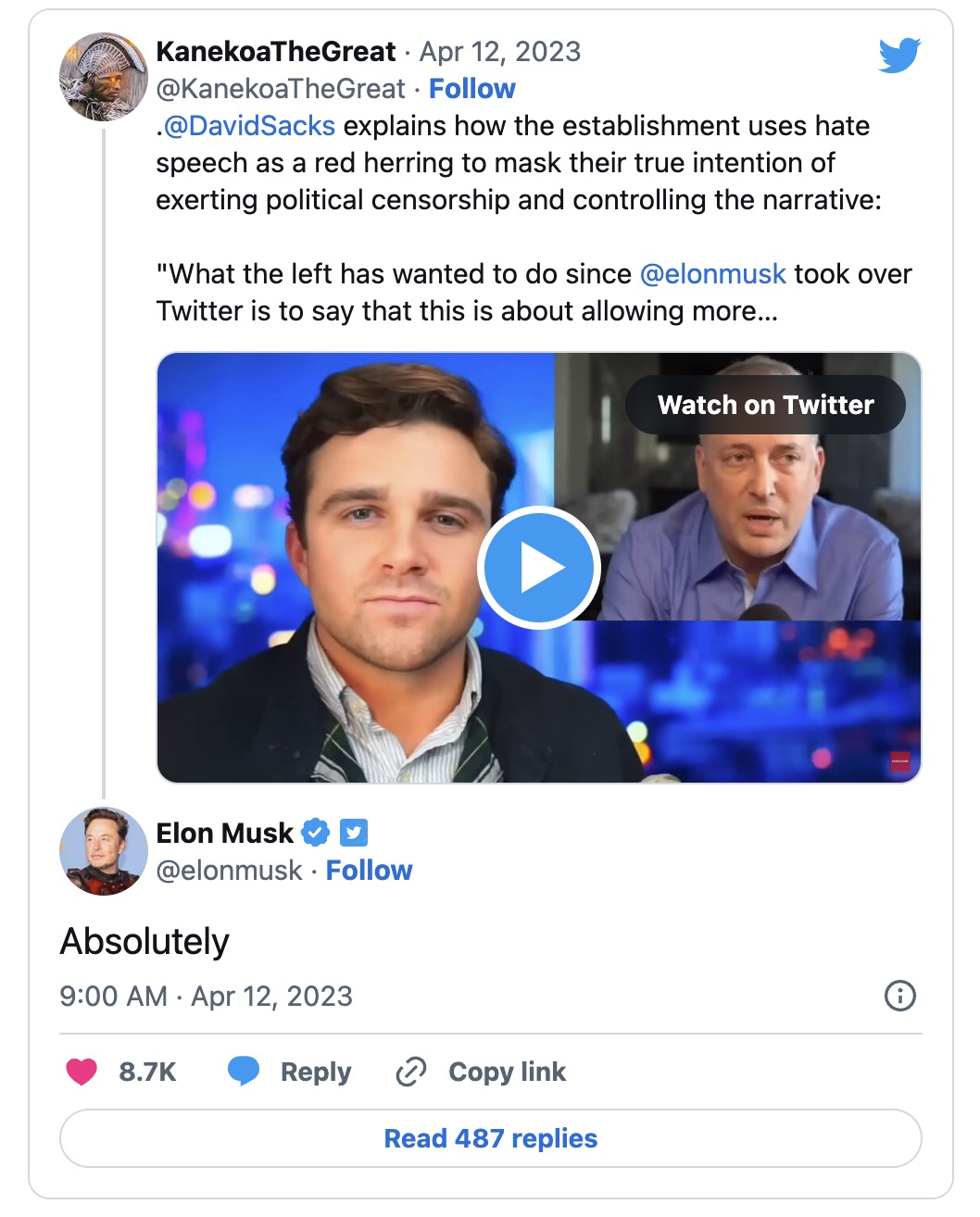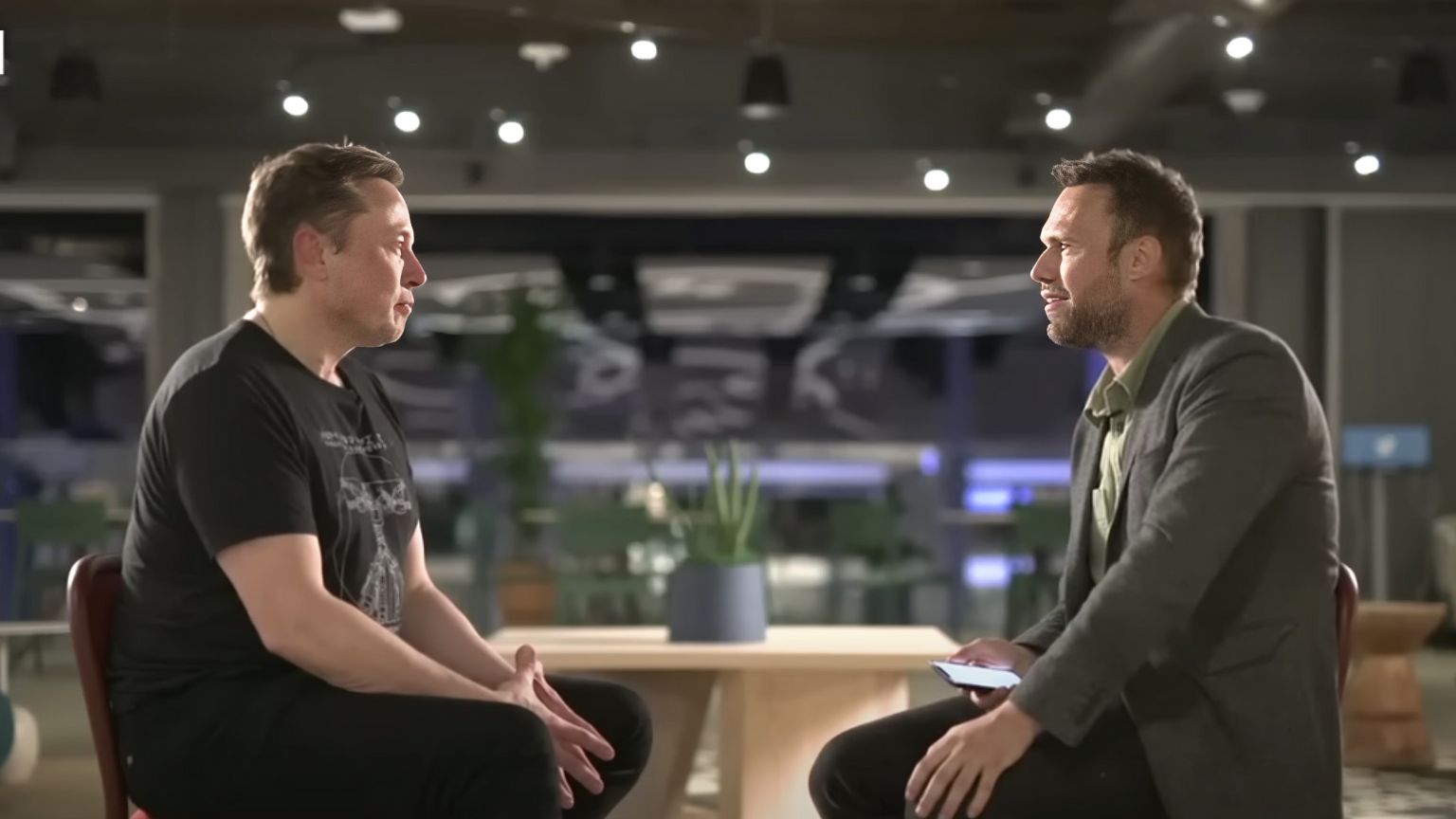In an interview with the BBC at Twitter headquarters on Tuesday night, owner Elon Musk called out the BBC reporter for lying about an increase in hateful content since he took over.
BBC reporter James Clayton asked Musk why there is “so much more hate speech on Twitter” since his takeover. Musk responded by challenging the reporter to provide one instance.
After Clayton hesitated, Musk said, “You said you’ve seen more hateful content but you can’t name a single example. Not even one.”
Clayton responded, “I’m not sure I’ve used that feed for the last three or four weeks, and I…”
“Then how could you see the hateful content?… I’m asking for one example. You can’t give a single one.” Musk interjected. “Then I say sir that you don’t know what you’re talking about … because you can’t give a single example of hateful content, not even one tweet. And yet, you claimed that the hateful content was high. That’s false. You just lied!”
Clayton then said there are “many organizations that say that kind of information is on the rise.”
“Give me one example,” Musk insisted.
Musk also referred to a thread by Twitter user @KaneokaTheGreat, which included a video of venture capitalist David Sacks explaining that the left “uses hate speech as a red herring to mask their true intention of exerting political censorship and controlling the narrative.”

“What the left has wanted to do since Elon Musk took over Twitter is to say that this is about allowing more hate on the platform, and that has never been the motivation for those of us who care about free speech… What is our main concern about censorship? It is political suppression. It’s about narrative control,” Sacks said in the video.
“It’s not like we want more hate on the platform. We want a level playing field. We don’t want the thought police at Twitter putting their thumb on the scale of American democracy and deciding who has a voice and who doesn’t.
“That’s what this is really about. The people who believe in censorship want to make you think that this is about allowing more hate, and it’s not.”
Aside from hate speech, Clayton and Musk discussed layoffs, advertisers who left returning or saying they would return, misinformation, and the billionaire’s work habits.













